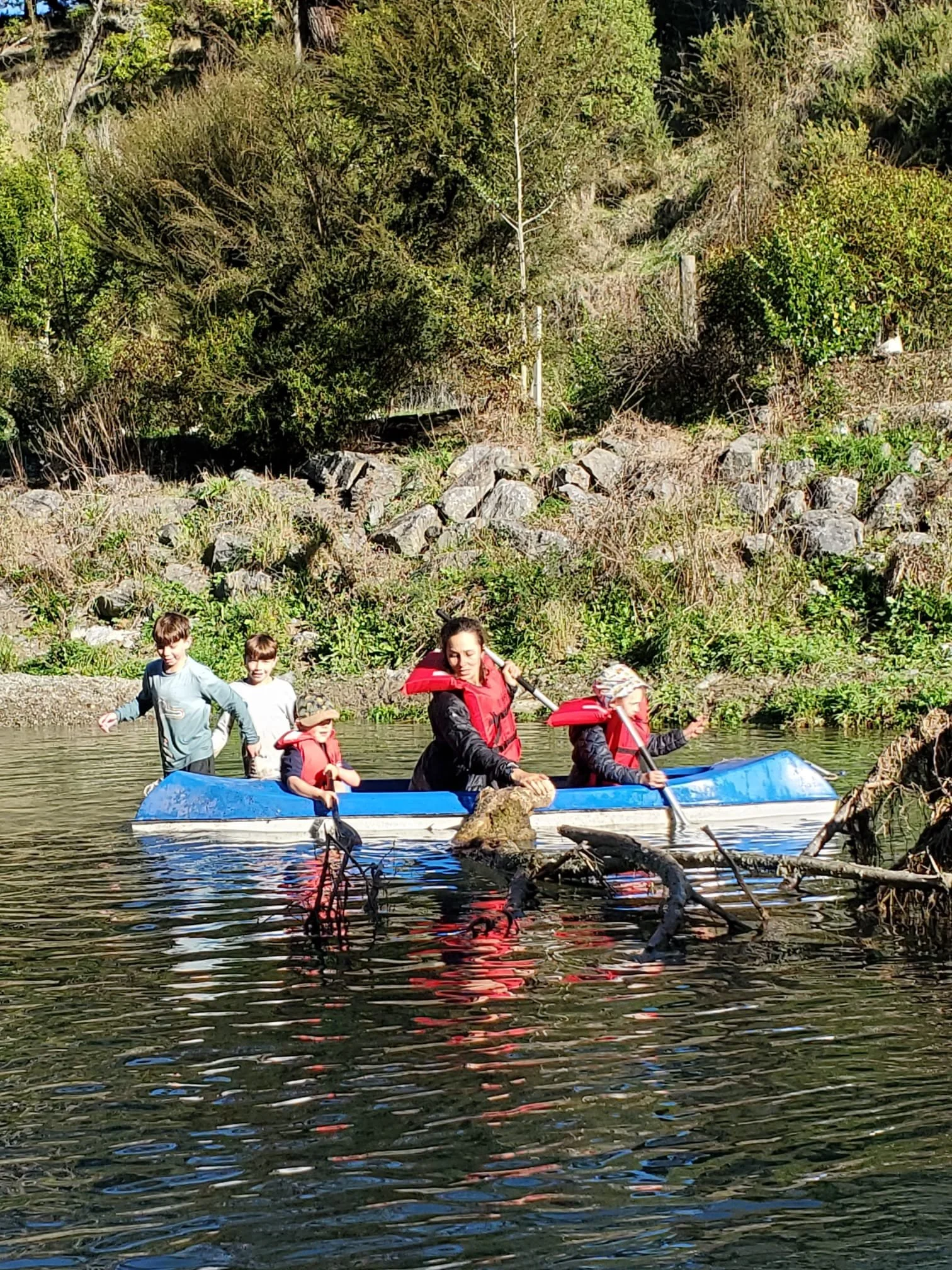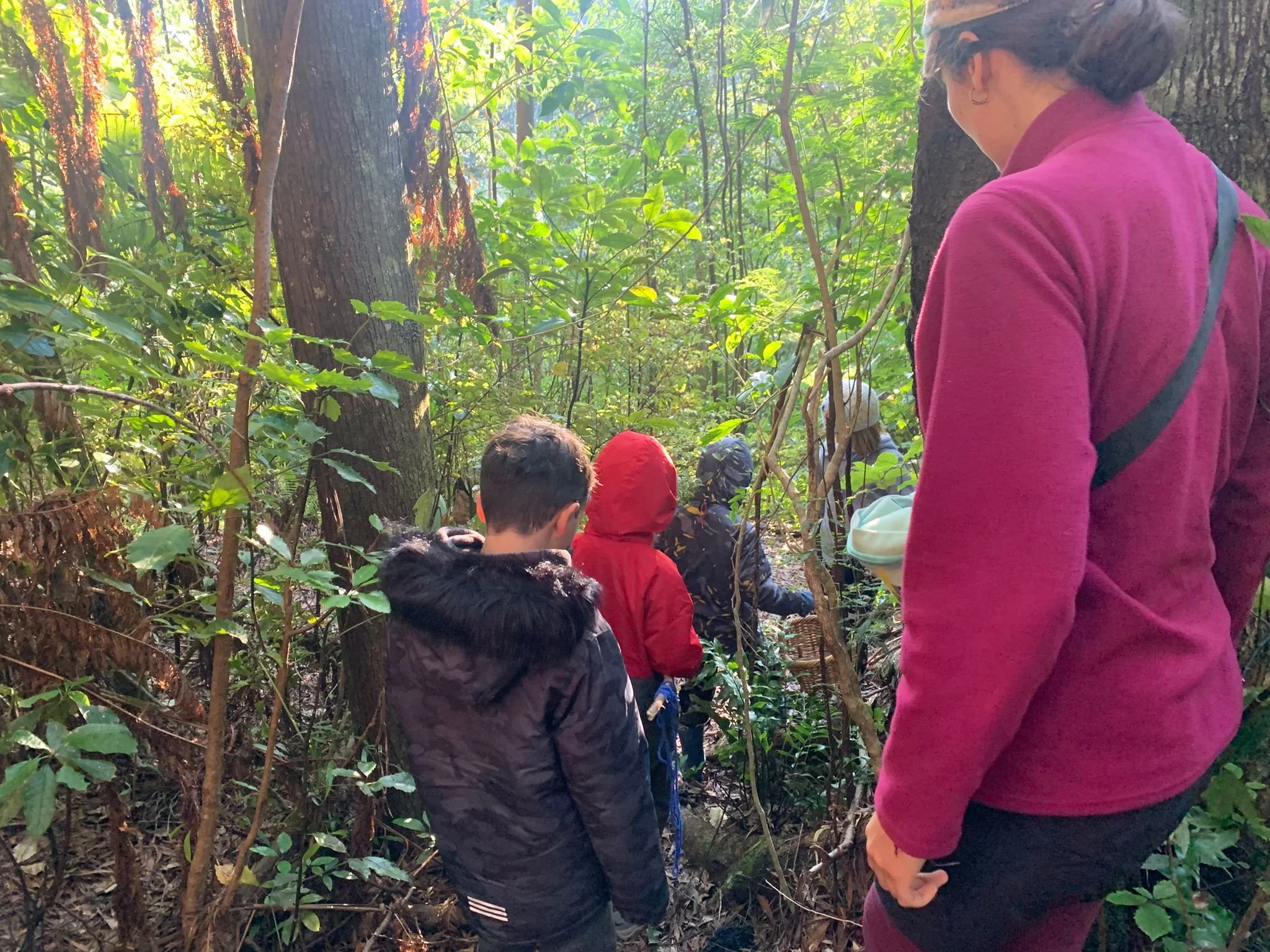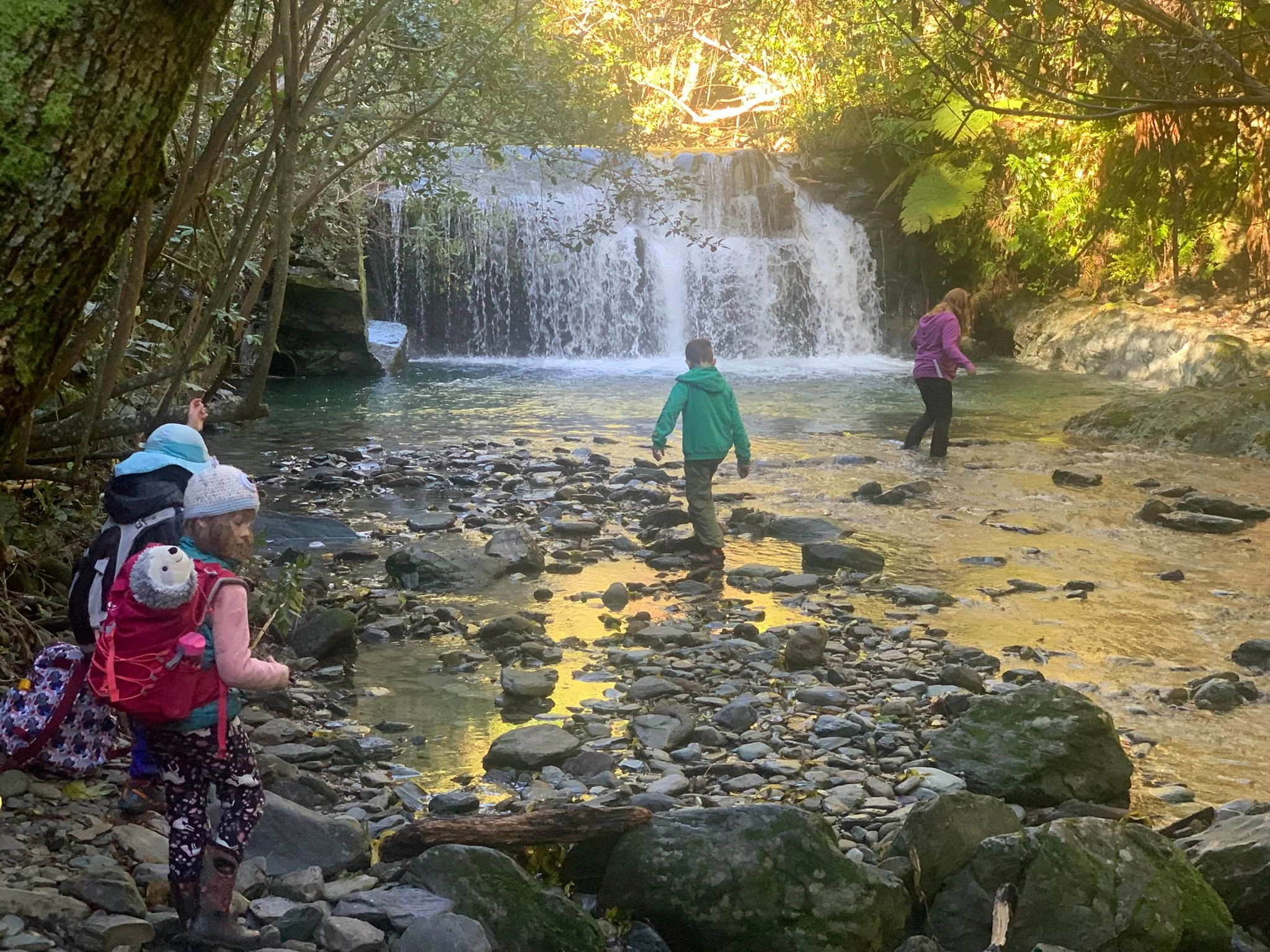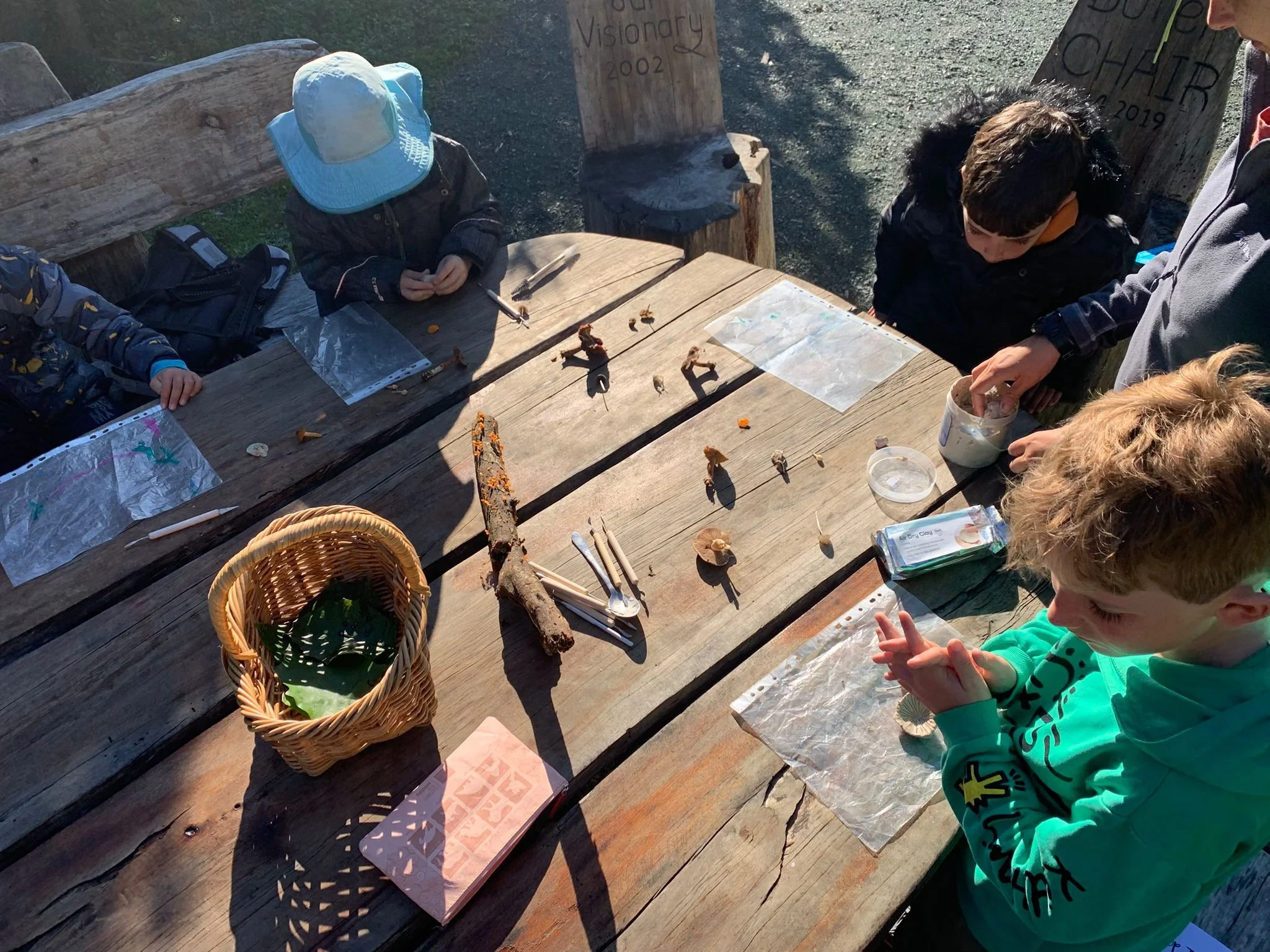
L. (9) when she came on a Saturday workshop:
“This was the best day ever!”
FAQs
-
It depends on how much rain, of course. We follow the national weather forecast closely on several apps and in the case of severe weather warnings the session would be postponed and parents contacted via phone.
If it's light, as is most common, in the traditional Danish philosophy style we will stay out and make the most of the rain! It brings about so many new learnings, play and facilitation opportunities (think, oh yes, mud). Tarps are always up for shelter, raincoats are on and it's part of learning what it's like to be outdoors.
However, we are also there to have fun and stay safe, so if it gets too much we will plan to be at our indoor shelter sites (either the Waimarama Community Gardens or at Fairfield House), which both have great outdoor spaces, power and running water.
-
Section 53 of the Education Act allows schools to decide if it's appropriate to release students for external learning one day a week. Many schools delegate this authority to the principal so parents who choose to be in the program generally set up a meeting with their principal and discuss it with them first. The school is interested in knowing that if your child is out of school, say, every Thursday, that they are in safe hands and growing and learning in a way that is right for them. We can provide a letter that explains what we do and our safeguarding policies, as well as anything else they may need. We have also visited many of the local schools to introduce what we do to them. To date, every principal has been supportive and understands our kaupapa.
We work alongside primary schools and kindys and strongly believe in their strengths. We are also aware of the current needs of this generation and work hard to provide solutions to those.
-
Risky play is what many children in our era are missing, so it is an integral part of what we do as NNS. However, this is not without guidance or support. Children (and adults) need the feeling of risk, while minimising the actual danger. Tree climbing has specific rules around it, and tool and fire use are rights to be earned upon developing the skills necessary. This includes impulsive behaviour. However the most important part of keeping children safe is allowing them to be a part of the safety conversations and risk assessments, to be self-aware of their skills, and to feedback and discuss among peers. The morning safety gathering is one of the ways we support this growth.
We ask that parents of any children requiring or using medications disclose this to us. We have a long list of things we do to ensure safety and conservative decision-making, reach out if you’d like the document.
-
Yes, of course! We also benefit from going slow and meeting you properly. Please contact us or sign up for one here: https://form.jotform.com/250555322644858 -
We welcome diversity, please let us know. The most likely scenario is we'll have a visit day to meet each other and see how the child settles into the new environment. Due to ratios we are unable to accept many neurodiverse or physically diverse children, but we really want to, so please contact us. Impulsive behaviour is one of the traits we struggle to say yes to, simply because of safety (i.e. running off and getting lost, fire...) but each child is different and we know it is often impulsive children who benefit most from this kind of program. Some kids attend with their support person and for others we’ve tailored a programme.
-
Admit it, we've all looked at those toddler clothes and wondered why they aren't in adult sizes. And when I describe what a day is like for the kids, the adult I'm speaking to often asks this question before any others.
But sorry, friends, not yet! Remember the forest and the stream are always open to you ;)
-
Yep, reach out and we can send you the full document. This may be helpful for schools, among others.






